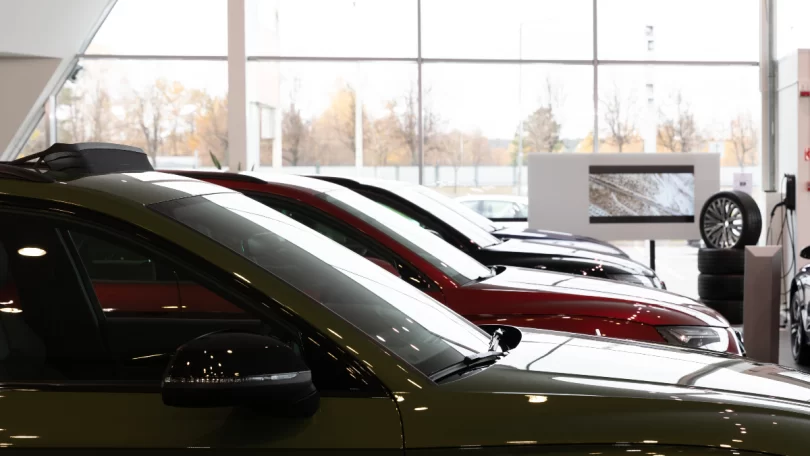[ad_1]
Subhabrata Sengupta (Executive Director, Avalon Consulting)
Ayush Patodia (Senior Consultant, Avalon Consulting)
Ganesh Shewatkar (Consultant, Avalon Consulting)
New Age disruptions impacting the customer journey
Advent of digital technology and the wave of electric cars are set to make huge changes in the traditional car dealership model. Technological trends (e.g. Industry 4.0, autonomous driving, car sharing, connected cars, electric vehicles, etc.) suggest a profound transformation is underway in the automotive space which will change the customer journey map irrevocably.
Traditional Dealership Functions and Operating Models
An automotive purchase is a high-value, high-cost purchase that demands a high involvement from the customer. Dealers play a pivotal role in helping customers take the decision.

The dealership models present in India are typically single-OEM with Chinese walls between different OEM dealerships. The functions of dealers are mainly Sales, Service, and Other related Value adds (registration, insurance, vehicle financing).
Erosion of Value Proposition offered by Auto-Dealerships
Increased internet accessibility and swiftly changing customer lifestyles have a protruding impact on the value propositions of the automotive dealership. The existing value chain will be soon realigned to be more efficient for both extremes of the value chain [OEMs on the upstream end and customers on the downstream end].
Value Propositions getting eroded at the Upstream end: Lead generation, displays in malls/public places/roadshows, accessibility to customer data (OBD and telematics are helping OEMs get a first-hand impression on a real-time basis)
Value Propositions getting eroded at the Downstream end: Information accessibility, value add-on (financing and insurance), pricing, government registrations
Changing Automotive Retail Business Models
Auto-dealership Business models are being questioned by the advent of EVs. Service will be impacted by EVs requiring fewer service interventions and through digitisation:
- Lower footfall because of direct sales by new OEMs (e.g. Ola, Tesla)
- Average maintenance and service fee is lesser, resulting in lesser customer spend per visit to the service centre. Spiralling real estate costs would make city centre showrooms commercially unviable
- Key EV components have their own aftermarket network and focus (Bosch, LG, Panasonic, Samsung)
Globally alternative models are being developed as automotive sales are steadily shifting towards online channels, especially in key markets like China:
- Luxury car malls
- Automotive Vending Machine in Alibaba’s T-mall
- Value-added services offered directly by OEMs like Tesla
EV Disruption in Aftersales Processes
Monitoring of the critical parameters like brake pads, belt tension, bearing wear can be done through a mix of sensors and telemetry

Changing Indian Landscape
Uptick in Digital Consumption in India is leading to changes in customer search behaviour combined with lifestyle enhancements. This mandates disruptions in the retail business models. It is imperative for the existing dealers to maintain pace with the changing customer needs to remain relevant.
Small retail players are likely to get benefitted due to customer preferences and ease of access to information as:
- Web-based sales inquiries have increased from 3 to 39% over the past few years
- Broadly, 6 out of 8 touchpoints of the customer’s journey with the dealership are now digital

We feel that although responses give a certain direction, however, the physical touch-point will continue to be important and auto dealerships will have a crucial, albeit reduced, role to play.
The widespread proliferation of EVs is likely to result in either of two possibilities:
- Consolidation of Sales and aftersales dealers
- Advent of Virtual reality and 3D – the physical inspection of the car will lose its importance
- Number of service visits, as well as revenue per visit, will reduce, thus reducing the revenue per bay
- This would necessitate a larger car park for an individual workshop to sustain which will lead to the consolidation of dealers
- Size of car outlets will shrink
- OEM will increase the parts margins of the dealers which will enable the dealers to breakeven which with smaller number of bays
- OEM will increase margins on sales which will enable the dealers to counter the impact of lower car sales
Other disruptions such as shared mobility and autonomous cars will however have limited impact in the short terms
- Shared Mobility: Although private car ownership is declining and multi-modal integration is boosting access, high-mileage of shared vehicles will warrant higher replacement, thus maintaining the sales numbers
- Autonomous (Self-drive) Cars: Autonomous Cars will take some time before impacting the auto industry significantly. Also, insurance companies will place liability on OEMs, sensors and device makers rather than customers.
Evolution of Dealerships
Although the traditional dealership model might not perish, the changing business environment will ensure survival of only those who are able to adapt. Our analysis shows that in the new era OEMs will have to pass on an additional discount of 10% to enable the dealership to maintain PBT at the same level.
So, finally, we arrive at the question of How? How can dealers evolve..
- From single OEM to car malls?
- To achieve regional multi-OEM service flexibility?
- More collaborative approach with the OEM using big data and analytics to create an omni channel presence for the customers
- Improve customer centricity by means of interactive website, service-based apps and providing home delivery of parts and accessories
- Upgrade the customer experience by incorporating Retail Walls and 3-D configurators in the existing stores
- Minimise inventory holding and transfer bulk of the sales process online and instead focus on ensuring high levels of customer satisfaction
- Tap into the second-hand car market which is yet to pick up big time in India (in comparison to the developed markets such as USA)
The authors are Executive Director, Senior Consultant and Consultant at Avalon Consulting.
Disclaimer: Views expressed are personal and do not reflect the official position or policy of Financial Express Online. Reproducing this content without permission is prohibited).
[ad_2]
Source link








